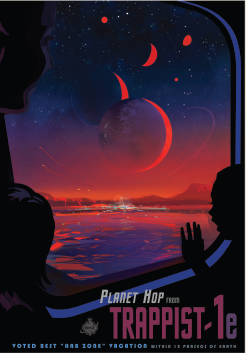2020 is a marks several anniversaries for science fiction media and science fiction genres.
What is Science Fiction?
Science Fiction is a genre of speculative fiction that typically deals with imaginative and futuristic concepts such as advanced science and technology, space exploration, time travel, parallel universes, and extraterrestrial life. There is a variety of types of
According to Isaac Asimov, “Science fiction can be defined as that branch of literature which deals with the reaction of human beings to changes in science and technology.”
2020 Anniversaries
September 21st, 1866: Fiction writer, H. G. (Herbert George) Wells born, England.
October 2nd, 1906: Space popularizer and science writer Willy Ley. Born, Berlin, Germany.
January 2nd, 1920: Fiction writer Isaac Asimov is born.
Types
There are many subgenres of science fiction, but here are a look at several of the more well known subgenres.
- Alien invasion
- Anthropological science fiction
- Apocalyptic and post-apocalyptic fiction
- Biopunk
- Black science fiction
- Christian science fiction
- Science fiction comedy
- Cyberpunk derivatives
- Decopunk
- Dieselpunk
- Dying Earth genre
- Ecofiction
- Edisonade
- Feghoot
- Feminist science fiction
- Gothic science fiction
- Grotesquerie
- Hard science fiction
- Imaginary voyage
- Libertarian science fiction
- LitRPG
- Mathematical fiction
- Military science fiction
- Mundane science fiction
- New Wave science fiction
- Post-Futurism
- Postcyberpunk
- Scientific romance
- Skiffy
- Slipstream genre
- Social science fiction
- Solarpunk
- Space opera
- Speculative evolution
- Speculative poetry
- Steampunk
- Tech noir
- Transrealism (literature)
- Weird West
- Space Western
- Widescreen baroque
Hard Fiction
First used in 1957 by P. Schuler Miller in writing, hard science fiction is characterized by concern for scientific accuracy and logic.
A few of famous works include Jules Verne’s Twenty Thousand Leagues Under the Sea, George Orwell’s Nineteen Eighty-Four, Aldous Huxley’s Brave New World, the movie Blade Runner, and the movie 2001: A Space Odyssey.
Soft Fiction
The oppose of hard fiction, soft fiction explores the “soft” sciences, and especially the social sciences [anthropology, sociology, or psychology] and is not scientifically accurate of plausible.
Famous examples in media includes Ray Bradbury’s Fahrenheit 451, Mary Shelley’s Frankenstein, The Time Machine and The Invisible Man from H. G. Wells, plus franchises such as Stargate, Star Wars, Star Trek, Dune, and Firefly.
Space Opera
This subgenres emphasize space warfare, melodramatic adventure, interplanetary battles, chivalric romance, and risk-taking that is set mainly or entirely in outer space. Stories usually involve conflict between opponents possessing advanced abilities, futuristic weapons, and other sophisticated technology. Famous examples that brought attention to the genre is the Star Wars franchise.
Steampunk
This genre incorporates technology and aesthetic designs inspired by 19th-century industrial steam-powered machinery. Examples include BioShock Infinite and Tim Burton’s Alice Through the Looking Glass.
For a history of science fiction and its impact on society, check out our article here. For more information about subgenres, check out this article.

Be the first to comment on "Overview Of Science Fiction And Types"